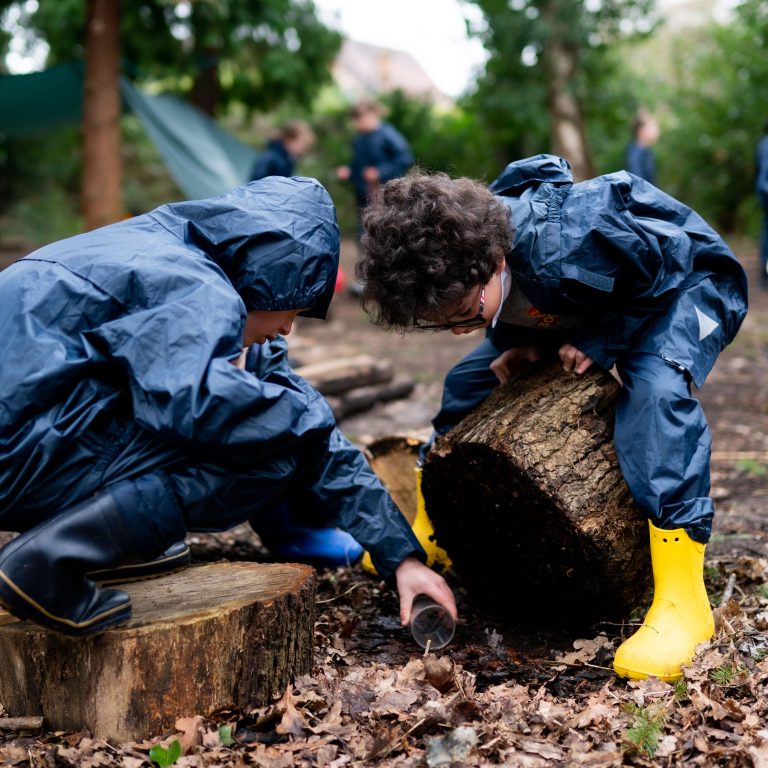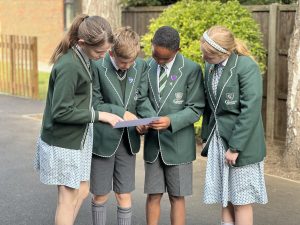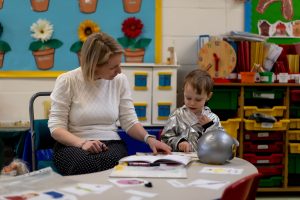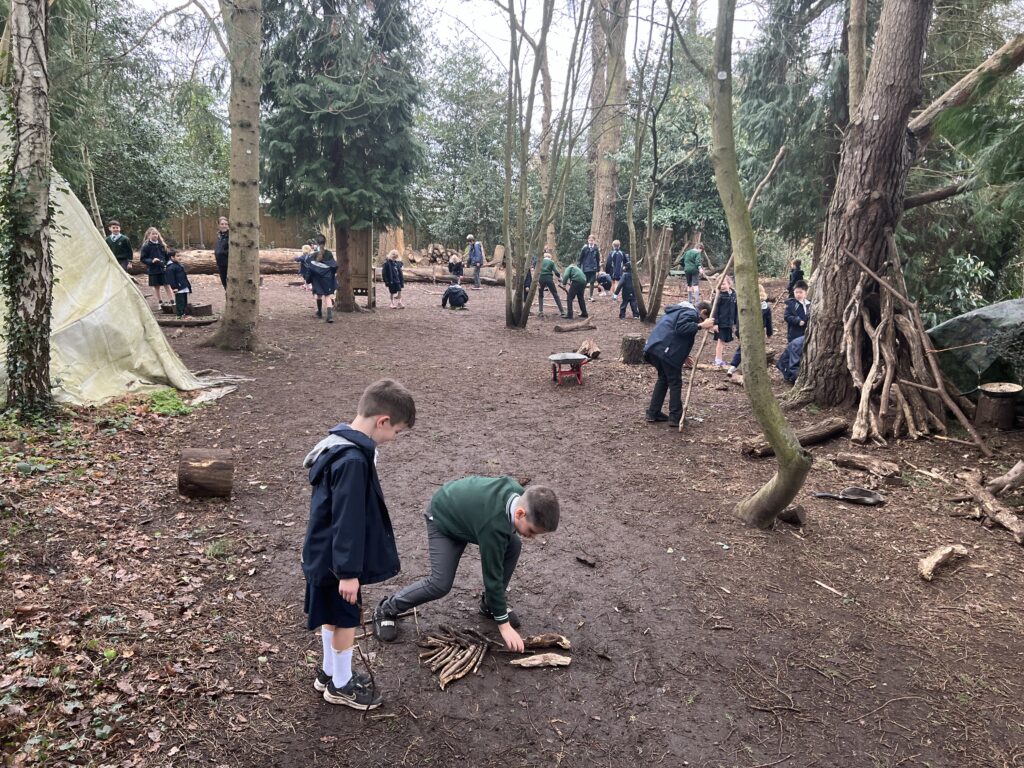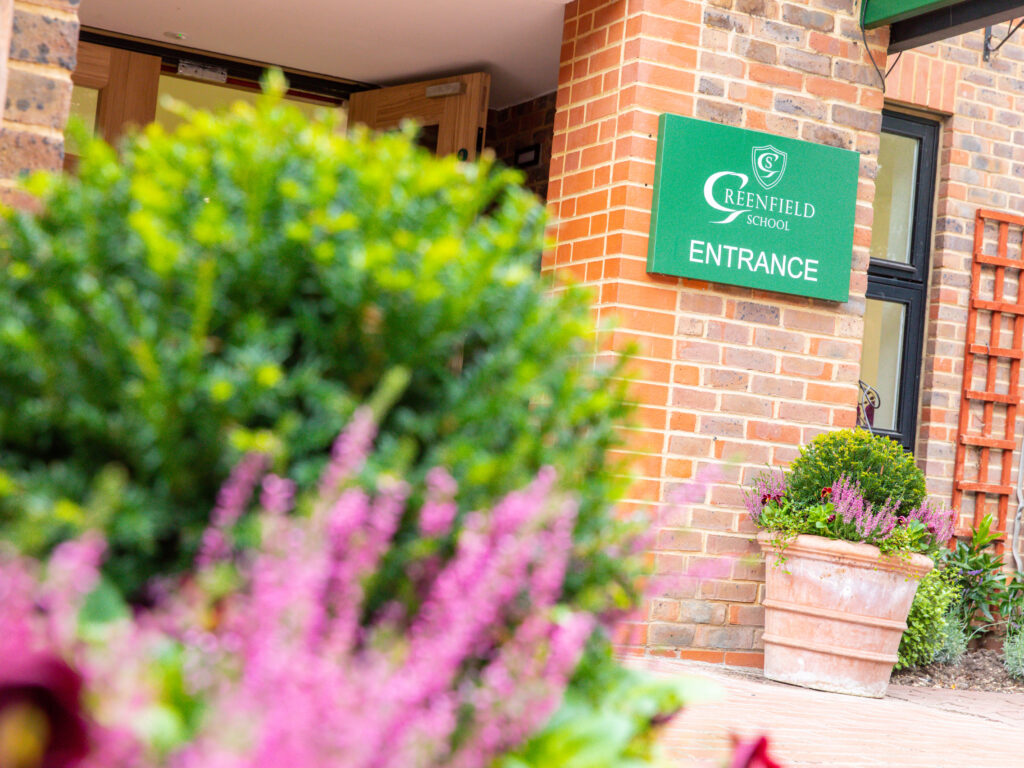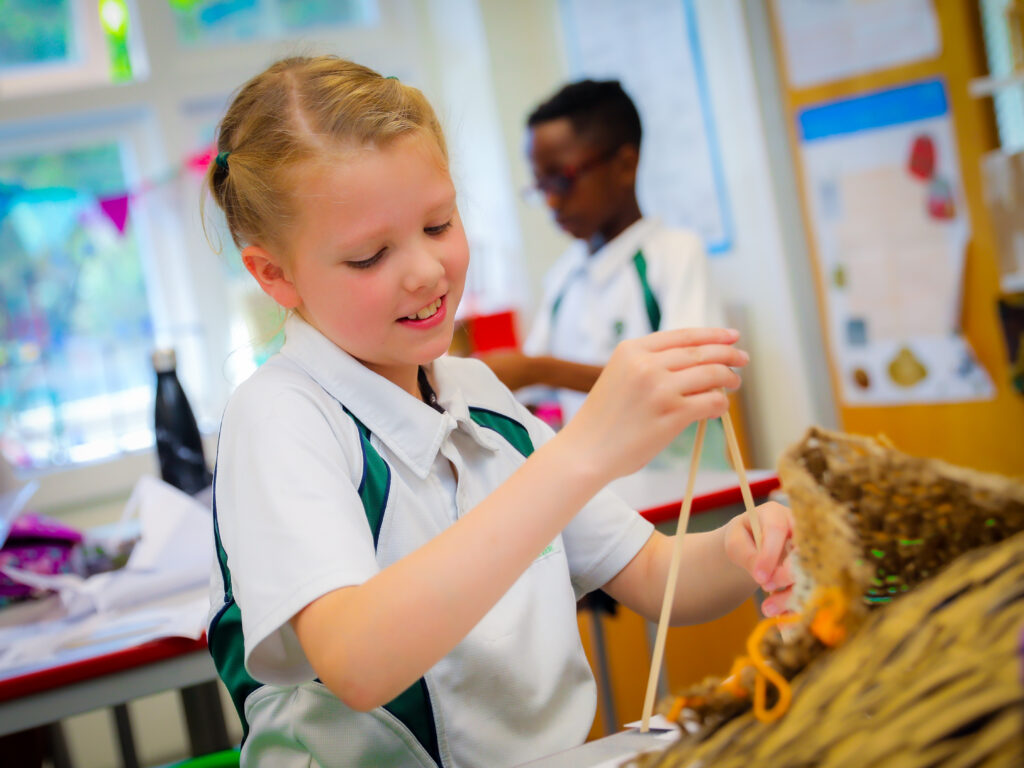Greenfield is committed to ensuring that our provision as a school encompasses the community outside the school walls and being a world citizen. There is always work to be done, but here you can read a few of the ways that we strive to make Greenfield even greener.
Future World Team
The Future World Team is a group of children from Reception to Year 6 who are committed to making ongoing positive changes in the world. Every week, they meet over breaktime to discuss new idea and initiatives that can be put in place around a certain topic. The children then complete their own research and present their findings before launching a fundraising campaign for a particular charity.
Bake sales are a great way to raise money at the school – every year the children (and staff) contribute to a breaktime bake sale and over the past 2 years we have raised over £700 for charities including Sea Changers and WWF.
Eco Club
Led by our Heads of Social Responsibility, our Eco Club meet every week to ensure that Greenfield stays green! Working with our Estates Team, our caterers CH&Co in the Kitchen, our cleaning team at Bright Horizons, as well as consulting our SLT, the children discuss and implement real ideas and initiatives that help Greenfield reduce its environmental impact.
Each term, the Eco Club focuses on a different topic within the Sustainable Development Code. In academic year 2022/23, the topics were: ‘Waste’, ‘Biodiversity’, and ‘Energy’.
This year a new topic has included ‘Marine’, and so the children have been raising money for Sea Changers all year, as well as thinking about various ways that the Greenfield community can help in the efforts to clean up our seas and oceans – including a litter pick at the local canal.
Every class also has dedicated ‘Eco Monitors’ that ensure that their classroom peers are doing their bit and following the green initiatives, e.g. turning the lights off, correctly disposing of recyclable materials.
In 2023 we were delighted to announce that the incredible efforts of our Eco Club and Future World Team earned us a Green Schools Green Flag Award!
Greenfield’s Green Flag Accreditation
World Citizenship: In the Greenfield Curriculum
As part of our relevant, real-world curriculum, we teach climate change and social responsibility explicitly throughout the curriculum: in the Lower School, in their Topic lessons, and for Middle and Upper School in their Geography and Understanding the World lessons.
In these lessons, topics include: plastic pollution, greenhouse gases, deforestation, and energy consumption. Using sustainable development goals, we aim to weave these topics into our curriculum through a variety of teaching: in drama lessons, we have had school productions with an environmental message (‘The Island That Rocked’), and in the English department we introduce literature and new authors whose stories touch upon these messages.
For each termly initiative that is put forth with the Eco Club, children in Middle and Upper School work towards a week-long ‘Make A Difference’ homework. Each year group’s task varies according to their age group, and one of our most recent assignments included researching the disposal of materials that are tricky to recycle or re-use, e.g. batteries, rubber, etc. Through child-led research and enthusiasm, we are always impressed by the dedication and quality of these assignments.
School Initiatives
We are always looking for new ways to make Greenfield’s processes and system as sustainable and environmentally conscious as possible. Along with our helpful eco warriors in the FWT and Eco Club, here are just a few of the most recent policies and initiatives that Greenfield has put in place to help do our bit in reducing our carbon footprint:
- Half and quarter portions at lunch to reduce food waste.
- All laptops, iPads and PCs use Ecosia – the search engine that plants trees.
- Introducing a ‘Laminating Policy’ to restrict laminating and reduce our plastic waste.
- Lights around the school automatically turn off when no motion is detected.
- Recycling facility for “soft” plastics e.g. plastic bags, clingfilm, crisp packets etc.
- Recycling facility for glue sticks, batteries, pens and coffee pods.
- Regular litter picks in forest school sites and local community.
- Continual re-use of exercise books from previous years to save purchasing new books and using unnecessary paper.
- All paper used in Art is recycled, and all glitter is biodegradable.
- In DT, rather than using plastic or cardboard containers, children bring in their own containers to take home food.
- All computers have an automated switch off in the evenings.
- Paperless Admissions
- Throughout 2021-2022, our Head of Admissions Mrs. Rust embarked on a mission to make our Admissions department completely paperless. Previously, every child in the school would have printed copies of all relevant documents – contracts, reports, documentation, welcome packs, prospectuses, communications…suffice to say we had an enormous paper output that we drastically reduced. After conducting a survey of current and incoming families, over 88% prefer digital communications and so now the whole Admissions process is paperless, from online forms to digital prospectuses. This Herculean initiative earned our small Admissions team recognition from AMCIS Awards, being shortlisted in the ‘IMPACT’ Admissions category in 2023.

